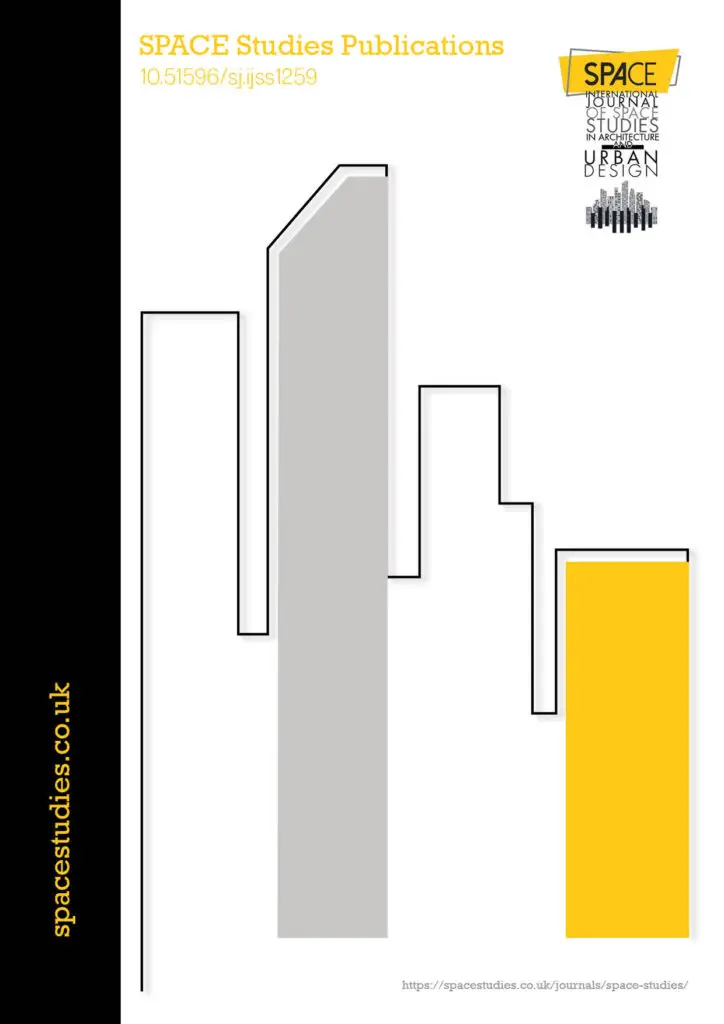
Right after WWII, informalities within Cairo evolved gradually, forming 70% of today’s urban spaces and 50% of the Egyptian economy. This paper aims to review the policies that triggered this growth over time, arguing that the incrementally implemented Politics of Neglect in Cairo shapes today’s severe urban segregation in the city. Furtherly, adopt the current pandemic crisis to address the effect of informal labour on the city as a whole: the rich and the poor. Thus, asserting that the pandemic crisis must be a junction to reassess the Egyptian urban policies’ approaches and target groups in contemplation of attaining Social Inclusion in Cairo. The paper is developed by analysing the historical trajectory and evolutional map analysis of Cairo’s urban growth and examining the quantitative data of informal economy growth rates in Egypt. Accordingly, correlating data to understand the evolution of informality in relation to the cumulative policies applied in the city.
£450.00 per Year.
Access to conference registration
Access to Journal subscription
£380.00 per Year.
Access to conference registration. Proof of student eligibility required.
Access to Journal subscription.
£410.00 per Year.
Discounts on conference registrations, SPACE shop and e-journals. Access to members only areas on the website.
Access to Journal subscription.
£400.00 per Year.
Student priced discounts on conference registrations, SPACE shop and e-journals. Access to members only areas on the website. Proof of student eligibility required.
Access to Journal subscription.
This paper has been presented at the Conference “AGORA CAUMME 2020 – Mediterranean: Between Expansion and Regeneration” and selected by the Conference Scientific Committee to be published in the SPACE International Journal of Space Studies in Architecture and Urban Design. Peer review under the responsibility of the scientific committee of AGORA CAUMME 2020.
Abdou, Doaa M Salman, Nadeen Sherif, and El Adawy. (2018). “Signals and Policies Required for Informal Markets : Evidence from Egypt & Signals and Policies Required for Informal Markets : Evidence from Egypt & China,” no. September.
Alfiky, Mohammed, and Philipp Misselwitz. (2015). “Development Priorities In Cairo Informal Areas Planning,” no. November 2018. https://www.researchgate.net/publication/329254071_Development_Priorities_in_Informal_Areas_Planning_Realization_and_Local_Perceptions_DEVEPER
Dahshan, Mohamed el. (2020). “Coronavirus: How Is Egypt Navigating the Economic Fallout?”. https://www.theafricareport.com/29007/coronavirus-how-is-egypt-navigating-the-economic-fallout/
Dorman, W Judson. (2007). “The Politics Of Neglect: The Egyptian State in Cairo, 1974-98,” 307. https://eprints.soas.ac.uk/155/1/Dorman_Politics_of_Neglect.pdf
EgyptToday. (2019). “Egypt Today.” 2019. https://www.egypttoday.com/Article/3/68388/Informal-economy-exceeds-50-of-Egyptian-economy.
Ezz, Mohamed. (2018). “How Egypt Deals with Informal Areas.” https://timep.org/commentary/analysis/how-egypt-deals-with-informal-areas/
Failedarchitecture.com. (2015). “Capital Cairo: A Regime of Graphics – Failed Architecture.” 2015. https://failedarchitecture.com/capital-cairo-a-regime-of-graphics/
Fareed, Doaa. (2020). “Millions of Egyptians out in the Streets despite Coronavirus Lockdown.” 2020. https://www.al-monitor.com/originals/2020/04/egypt-lockdown-coronavirus-economic-irregular-workers.html
Frieden, B.J., Marshall, K. (1975). The Politics of Neglect : Urban Aid from Model Cities to Revenue Sharing. Cambridge Mas.: The MIT Press. ISBN:978026206061
Khalifa, Marwa A. (2015). “Evolution of Informal Settlements Upgrading Strategies in Egypt: From Negligence to Participatory Development.” Ain Shams Engineering Journal 6 (4): 1151–59. https://doi.org/10.1016/j.asej.2015.04.008.
Kus, Basak. 2014. “The Informal Road to Markets: Neoliberal Reforms, Private Entrepreneurship and the Informal Economy in Turkey.” International Journal of Social Economics 41 (4): 278–93. https://doi.org/10.1108/IJSE-11-2012-0209.
Perera, Nihal. 2009. People’s Spaces: Familiarization, Subject Formation and Emergent Spaces in Colombo. Planning Theory. Vol. 8. https://doi.org/10.1177/1473095208099298.
Ravazzoli, Elisa, and Stefania Toso. 2013. “Spatial Relations of Informal Practices in Cairo Streetscape.” Paper Presented at the International RC21 Conference 2013 Session 09: Urban [in] Formality: Tensions, Conflicts and Breakups in the Struggle to Belong, no. August: 29–31.
Séjourné, Marion. 2009. “The History of Informal Settlements.” In Cairo’s Informal Areas Between Urban Challenges and Hidden Potentials. https://www.academia.edu/5000667/Cairos_Informal_Areas_Between_Urban_Challenges_and_Hidden_Potentials
TheNewArab. 2020. “Egypt’s Informal Workers Say Government Coronavirus Aid Not Enough to See Them through Crisis.” 2020. https://english.alaraby.co.uk.
Vishwanath, Tara. 2014. “Arab Republic of Egypt More Jobs , Better Jobs : A Priority for Egypt,” no. 88447: 222. http://www-wds.worldbank.org/external/default/WDSContentServer/WDSP/IB/2014/10/24/000350881_20141024080250/Rendered/PDF/884470EG0repla00Box385343B00PUBLIC0.pdf.
No potential conflict of interest was reported by the author(s).
Hagar Faggal
Enter your email and we’ll send you more information about all activities and membership.

28-29 November 2024
Registered address: 151 West Green Road, N15 5EA, London, UK
Mails to: 23A Alwold Crescent,
SE12 9AF, London, UK
+44 2037242458
+44 7780014146
space@spacestudies.co.uk
architecturalspacestudies@gmail.com
Sign in to continue
Not a member yet? Sign up now